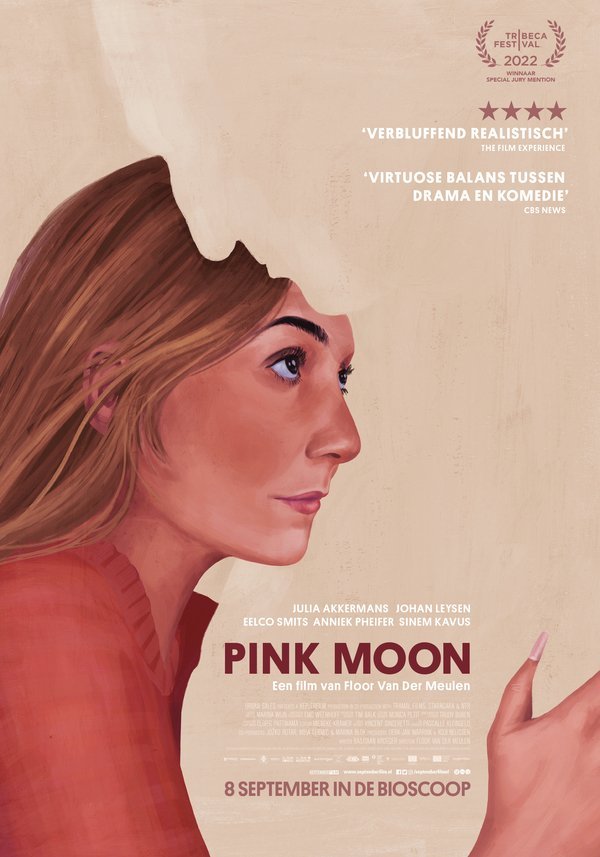54+
Zagreb Film Festival and Network of the Festivals in the Adriatic Region are inviting all the cinephiles older than 54 to apply for film critics and analysis workshop.
Applicants from Croatia, Slovenia, Bosnia and Herzegovina, Serbia and Montenegro will attend Zagreb Film Festival for four days and watch films in Adriatic Audience Award selection. The workshop is structured as a series of screenings, lectures and open discussions, and as a result, written critics will be published on the Network website and other platforms of partner festivals. Mentor of this workshop is film publicist Nino Kovačić.
Apply now!
If you want to participate, please send your biography, motivation letter and short review of one film (one-pager) by October 3rd at nikovacic@gmail.com.
Festival will cover the costs of accommodation and travel up to 150 Euro.
Film reviews
54+ participants about films in competition for Adriatic Audience Award
Irina Dobnik
In the program of the Network of Festivals in the Adriatic Region, three exceptional film creations: Pink Moon, Alma Viva, and Wet Sand were strung as beads of a universal necklace of the imaginary embrace of life and death. The seal of that necklace is love. Wrapped in a veil of mystery, the striking film scenes created incredible life situations, which, through unlived and complex emotions, brought the unthinkable closer to the real, brought dreams closer to reality, and "hell to heaven".
Silvija Čičak
Intregalde is a new film by multi-award-winning Romanian director Radu Muntean. The film tells a story about a group of volunteers who deliver humanitarian aid in the Romanian backwaters in a witty and somewhat sarcastic manner along with unexpected twists, Intregalde literally means “between two rivers”. It is a lucid pun for the title of the story of two worlds that each remain on the banks of their own river, where lives flow parallel and close, but never touch.
Nada Piacun
It is lonely and quiet at night on the Black Sea, which is illuminated by the moonlight, and rolls menacingly in front of the cafe "Wet Sand". Blue and yellow neon inscriptions, and one illuminated room, penetrate the darkness. While Amnon, the café owner, looks out into the sea, the next scene brings us into the house of an elderly gentleman in a bathrobe. In the musical background, we listen to Swans' song "Our Live Lies", while the dim light of the lamp illuminates the face of the old man in front of whom there is a glass of red wine, and fish and bread in the plate: New Testament symbols. The man is called Eliko and writes a letter, wraps it around the bottle as a label and wraps it as a gift with a decorative ribbon. Then a mysterious knock is heard and everything exudes an atmosphere of mystical danger.
Damir Škrjanec
The feature-length debut of Dutch director Floor van der Meulen, through the prism of family relations, challenges the issue of personal freedoms, the limits to which they can go without being detrimental to the people with whom we are connected. During the family dinner, father Jan announces to the children that he has decided to kill himself. Why would he want to do that? Does he have a right to do that, how this will affect his children? Where does personal freedom end and responsibility for others begin?
Dejan Šapić
At the beginning of the new film by Radu Muteanu, Intergalde, we see three nice young people, Maria, Dan and Ilinca, riding on muddy and difficult to pass mountain roads to distribute humanitarian aid to elderly locals in remote villages. Moving towards the village of Intregalde, they constantly talk about their own lives. All challenges begin when they encounter a senile old man, Kente, on the way, whom they accept to take by car to a nearby sawmill.
Boris Abramović
Wet Sand, directed by Elene Naveriani, was screened at the jubilee twentieth edition of the Zagreb Film Festival as part of the Network of Festivals in the Adriatic Region, which consisted of three other excellent films: Alma Viva, Intergalde and Pink Moon. All films deal with the topic of death and old age, which is best summed up in a sentence from the film Alma Viva: “the living close the eyes of the dead, and the dead open the eyes of the living.”
Sergeja Šorli
The four films screening in the Network of Festivals in the Adriatic Region Section at this year's Zagreb Film Festival ostensibly feature very different stories, but after seeing them we realize that they share several common characteristics. The principal characters are women, (non)death serves as the vital catalyst for the protagonist’s growth, the films show different types of purification; a conclusion can be drawn that the driving force behind modern civilisation is the self-actualisation of strong women.





